President Trump has authorized what he called a “kinetic strike” from a US warship that destroyed a boat allegedly carrying drugs from Venezuela bound for the US, killing 11 so called “narco terrorists” aboard.
The action by a US naval task force in international waters in the southern Caribbean is the first since the President threatened armed intervention against narcotics smuggling by Venezuela’s drugs cartels in January. Trump said that the attack was aimed at members of Venezuela’s Tren de Aragua drugs cartel which the US branded a terrorist organization in February, and which it claims is controlled by Venezuela’s socialist Maduro regime.
The US Department of Justice has called Venezuela’s President Nicolas Maduro “the world’s No. 1 narco terrorist” and has put up a $50 million reward for information leading to his arrest on drugs trafficking charges.
For his part, Maduro has vowed vengeance on any “empire setting foot on the sacred soil of Venezuela” – and called out his paramilitary Bolivar militia to guard the country’s borders. Thousands of Venezuelans queued at the weekend to register their membership in the force. Maduro has denied any links with the Tren de Aragua cartel, claiming that the gang was completely destroyed in a prison battle in 2023.
Coincidentally or not, the Tren de Aragua gang’s rise coincided with the coming to power of Nicolas Maduro. Founded in 2014, the cartel spread across the Americas, ironically aided by the flight of millions of Venezuelans escaping the social and economic misery created by the Maduro regime.
The cartel was founded by a gangster called Hector Guerrero Flores, known as Nino Guerrero. He and other leaders of the gang were jailed in Venezuela’s Tocoron prison, which became the cartel’s de facto headquarters under the gang’s control.
Maduro’s security forces stormed the jail in 2023 and claimed that they had destroyed the cartel, but their power continued to grow, and US cities were flooded with fentanyl and other drugs trafficked by the organization.
In March, President Trump invoked the 18th-century Enemy Aliens Act, a wartime measure, and ordered the deportation of cartel members living in the U.S. He compared the cartel to Al-Quaeda and other foreign terrorist groups. After some deportations were delayed by “lawfare” in US courts, Trump’s missile strike against the drugs boat represents the opening of a new front in the campaign against the flood of drugs originating in Venezuela.
The US war against drug dealing Latin American dictators has a long history. In 1989/90 President George Bush senior ordered Operation Just Cause against Panama, a full scale invasion of the Central American state designed to extradite the country’s dictator, General Manuel Noriega, to face trial on drugs trafficking charges. Although Noriega had worked as a CIA agent of influence and had helped the US backed Contras fight the left-wing Sandinista regime in Nicaragua, this did not save him from deportation to the US and a 17-year stint in a Florida jail. He later served a jail sentence in France for money laundering and died in Panama of a brain tumor in 2017.
Trump briefed reporters at a news conference in the White House Oval Office on Tuesday that he had ordered the strike to prevent the narcotics reaching the US. “…an awful lot of drugs on that boat,” he added. Later the President wrote on TruthSocial that the strike should “serve notice on anyone even thinking about bringing drugs into the United States of America. BEWARE.” A video posted by the President on the platform showed the boat exploding.
Tension between the US and the poverty stricken socialist ruled state has ratcheted up in recent days after Trump sent a naval task force of seven warships and a nuclear powered submarine towards the Venezuelan coast.
Tuesday’s strike is the first time that the Trump administration has taken armed action against a Hispanic neighbor, and will revive memories of US interventions under previous administrations against states deemed to be harming American interests like Cuba, Panama and Grenada.
The Maduro regime is now almost certain to take action against the US in revenge for the strike, though what form such action will take is not yet clear. The Venezuelan President, a former bus driver, was re-elected to office a year ago in a poll widely condemned by observers as rigged. Maduro is likely to try to revive his flagging popularity by appealing to Venezuelan patriotism and traditional Hispanic anti-Yankee nationalism.
Since Maduro succeeded the charismatic Hugo Chavez in 2013, around eight million desperate people – an estimated one third of the entire Venezuelan population – have fled the country to escape rampant hyperinflation, widespread unemployment, and shortages of food and basic goods. Many of the refugees reached the US under the Biden administration, and Trump has been deporting those living in America illegally.
Venezuela has enormous oil deposits which have been mismanaged by Maduro’s far-left government. Instead, the regime has derived much of its illicit income from the illegal trade in drugs which has been wreaking crime and chaos in America’s cities, and which Trump has pledged to halt. Now the President has acted on this pledge.



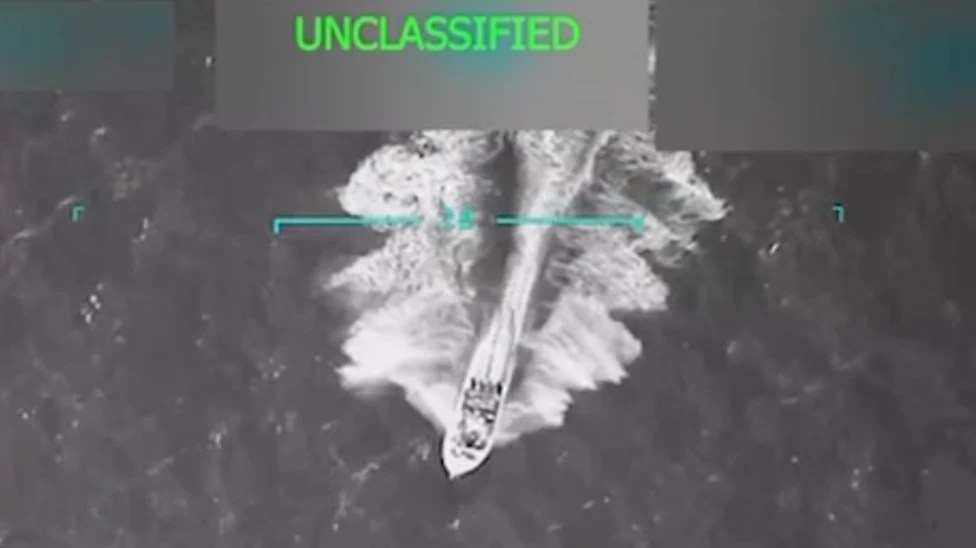






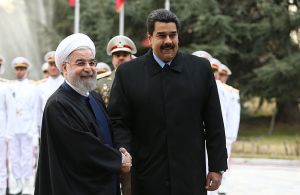
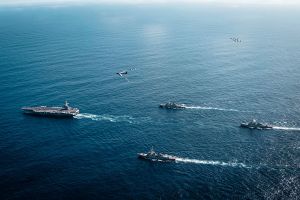
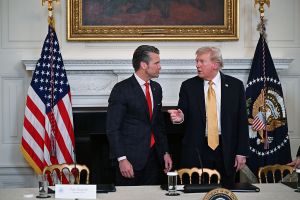
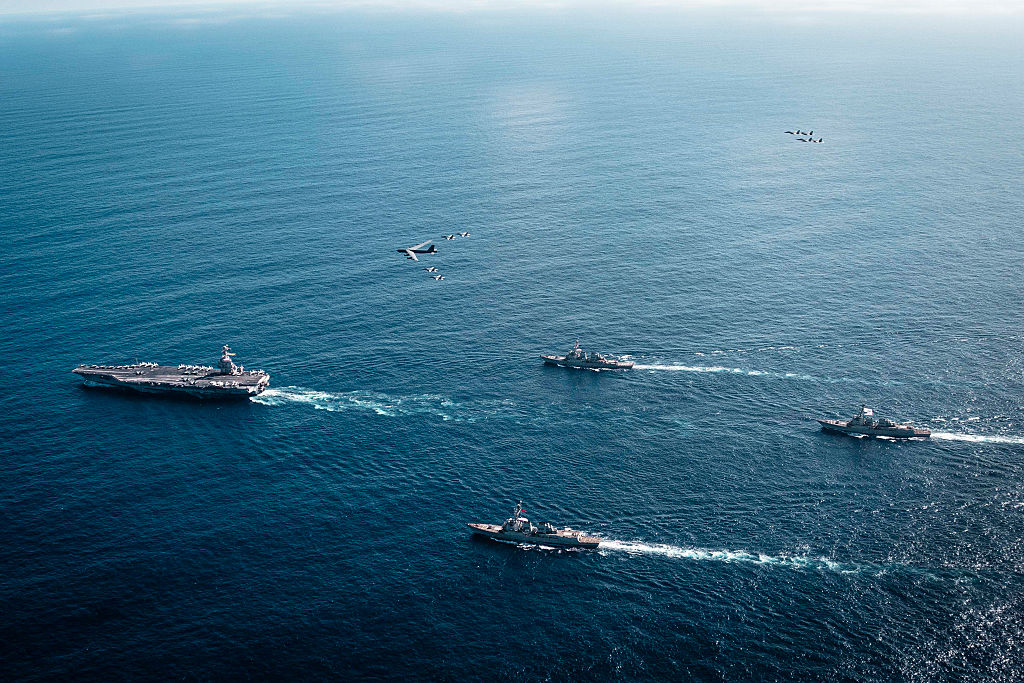




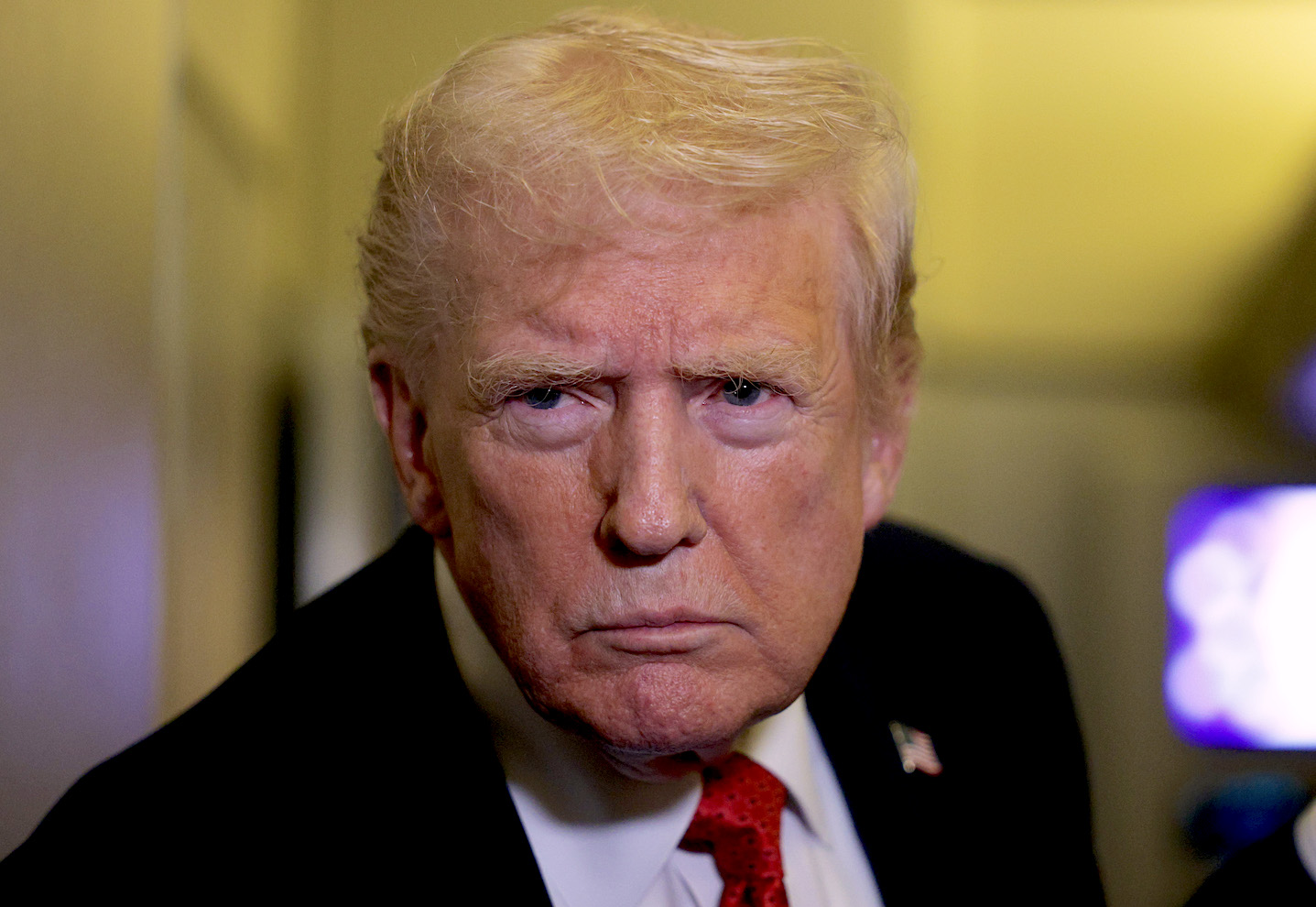







Leave a Reply